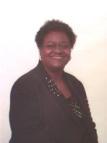|
Momentous events occupied the minds of Americans in the spring of 1954. Senator Joseph McCarthy was at the height of his power, conducting Communist-seeking witch-hunts and spreading fear throughout the State Department, the army and the American movie industry. The Viet Minh surrounded the French forces at Dien Bien Phu, an action that would eventually lead the United States into the disastrous war in Vietnam. And the United States Supreme Court was in the process of hearing the historic Brown vs. Board of Education of Topeka case.
The court would rule, in a unanimous decision, that the “separate but equal” clause was unconditional because it violated black school children’s 14th Amendment rights by separating them solely by the color of their skin. A racial firestorm was about to erupt that would take over fifteen painful years to resolve.
With these headlines in the news, one could have been forgiven for missing an extraordinary and historic event that took place in the southwestern Louisiana town of Crowley.
In those days before the Supreme Court’s Brown decision, segregation was an accepted fact of life throughout the south. Few blacks were allowed to register to vote and all public facilities – schools, train cars, restrooms, restaurants – were race-separated by law. All political power rested in white hands.
This changed in the summer of 1954. Two black men, Joseph A. Pete and David L. May, were seated on the Crowley Town Council. They were the first blacks to serve in an elected post in a white-majority city or parish in the state of Louisiana during the twentieth century.
To elect aldermen to its city council, the city of Crowley’s was divided into four districts. A Democratic party primary was held in each district and the two candidates with the most votes in each of the districts took seats on the council.
On top of that, one councilman was elected in a city-wide race s the alderman-at-large. There was no viable Republican party at the time anywhere in the Old South so, for all practical purposes, the Democratic election was the final election.
Alderman District #3 had a predominantly black population but had heretofore always been represented by whites. This was principally because the vast majority of blacks were not registered to vote.
This is a legacy of the years of “Jim Crow” laws, which were designed to minimize black political power. One example of this was the infamous “Grandfather Clause”, whereby turn of the century men who could not read were not allowed to vote unless their father or grandfather was a registered voter before the end of the Civil War.
Since black schools were substandard or non-existent and no black fathers or grandfathers were voters during the era of slavery, this effectively disenfranchised almost all black voters without officially saying so. In 1948, there were only 765 black voters in the entire parish of Arcadia.
At the beginning of the 1964 campaign, it looked as if no great change was going to occur. The two incumbent aldermen for the 3rd Ward of Crowley were Russell Chachere and Frank Schenkel. Two black men, Joseph A. Pete and David L. May, also qualified but their chances of victory were considered very unlikely.
The Councilman Chachere died unexpectedly after the qualifying closed but before the primary election. While the newspaper reported talk of getting someone else to run – presumably a white – the state election law specifically stated that this would not be legal. Since two of the three candidates for the two positions were black, Crowley was assured of sending its first black councilman into office.
A few days later, Alderman Schenkel withdrew from the race, citing ill health. With just Pete and May left as candidates, there was no need for an election and Crowley’s new black councilmen were sworn in on July 1, 1954.
It was during this same Crowley election that another historic event took place, one that would greatly concern the entire state in the years to come. One of the newly-elected councilmen from the 1st Ward was a young attorney who hailed from Marksville.
This Crowley election would launch the political career of Edwin Washington Edwards, four-time governor and a man who was to definitely leave his mark on Louisiana.
At the swearing in ceremony, the councilmen were asked if they had any remarks to make. Councilman David L. May gave the following statement:
“I accept the charge given to me as councilman of our great city of Crowley. In carrying out that charge I pray to discharge my duty as God has me to interpret it. I sense very keenly my responsibility to the people of this city. They are looking to us to make this city a better place in which to live.
They are looking to us to provide growth for our city. They are looking to us to be broadminded and understanding. They are looking to us to be alert and discreet. In carrying out my duty, my actions will be identified with integrity, with fairness and with a sense of responsibility and justice.
I will always be open to suggestions and I will always vote according to my conscience.”
While this was a momentous milestone in the civil rights struggle in southwestern Louisiana, things did not change overnight. The school desegregation was still a long way off; it would be 1971 before the painful process would be complete in this parish. It would also be a while before other Acadia Parish governing bodies would follow Crowley’s lead by electing black representatives. Coley M. Bellamy became a Rayne alderman in 1974 and Thomas Tandy Batiste joined Church Point’s council in 1978. The first black police juror, Alfred Norman, Jr., took office in 1976 and Earl B. Smith and Wadie H. Bias became members of the school board in 1975.
But Councilmen Pete and May did make a difference. Forever more would the Crowley black community be represented by a member of their own race. While David May served two terms, Joseph Pete kept his hard-won office until 1982 for a phenomenal twenty-eight years. Black voter registration in the parish more than quadrupled from 1948 to 1956, and rose rapidly thereafter.
These two sources of inspiration for Crowley citizens of every color had long been leaders of the city’s black community. David May had come to Crowley to teach industrial arts and math at the Crowley Industrial Training School (later Ross High School).
While serving in that capacity, he married a fellow teacher, Jeannette Ross, who was the daughter of the school’s pioneering principal, Henry Clay Ross. In 1942, May succeeded his father-in-law as principal and kept the job until his retirement in 1964. He also served as the president of the historic People’s Investment Company. Joseph Allen Pete, Sr. owned and operated a barber shop in western Crowley for a number of years and married Mary Grace Poullard in 1930. Councilman Pete fought hard to register black voters and was a strong believer in education. All four of his children, Joseph, Jr., Evelyn Pleasure, Delores Owens and Gloria Batiste, worked in the teaching profession and his son served as the principal of Ross High School in 1964-1965.
| 
